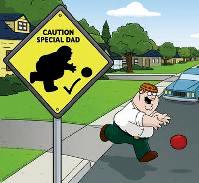 From Ask Figaro:
From Ask Figaro:
Hey Fig,
What do you make of the fact that the younger generation (college age students) are so steeped in rhetorical messages, from MTV to Myspace, and yet so often fail to advocate for much of anything? Is this a shortcoming on the part of the academy to teach classical rhetoric (public sphere advocacy), or is their rhetoric subtler, more personal, and perhaps the academy needs to adapt (maybe term papers should be “Which is Better: The Simpsons or Family Guy”)?
DB
Dear DB,
The Simpsons.
Oh, wait. That wasn’t your question. Young Americans seem to belong to a particularly ironic generation. As I say in my book, a kid who uses “like” every other word is practicing a form of irony, distancing himself from his own statement. (“Are you, like, freaking or something?”)
Of course, college campuses regularly exceed their quota of idealistic whelps who are perfectly willing to point out the essential evilness of everything you do. But here’s the interesting part: most of what they deem political, previous generations would consider purely personal.
This country has merged the two lives in a way that would have astonished, say, Thomas Jefferson, who earnestly opposed slavery while practicing it. The issue, Jefferson thought, wasn’t Jefferson. It was America. That’s no longer true. A senator who plays footsie in an airport bathroom stall, for example, is no longer qualified to represent the anti-gay movement, even though self-deluded homosexuals often make the very best homophobes.
So what should the academy do about it? For one thing, it should stress the difference between deliberative argument and demonstrative (I call it “tribal”) rhetoric. Deliberative argument deals with choices and speaks to your mutual advantage. Demonstrative rhetoric is all about good and bad, who’s good and who’s bad. When we use tribal rhetoric in politics, the personal becomes political. Americans are skilled at tribal rhetoric, and clueless about deliberative argument. (See chapter 3, “Orphan Annie’s Law,” of Jay’s book.)
As for those term papers on the Simpsons and Family Guy, I’d suggest an oral debate instead. Let a student playing Peter Griffin argue family values with one playing Homer Simpson. The ancient rhetoricians loved this exercise, which they called ETHOPOEIA. May the best cartoon win.
Yrs,
Fig.